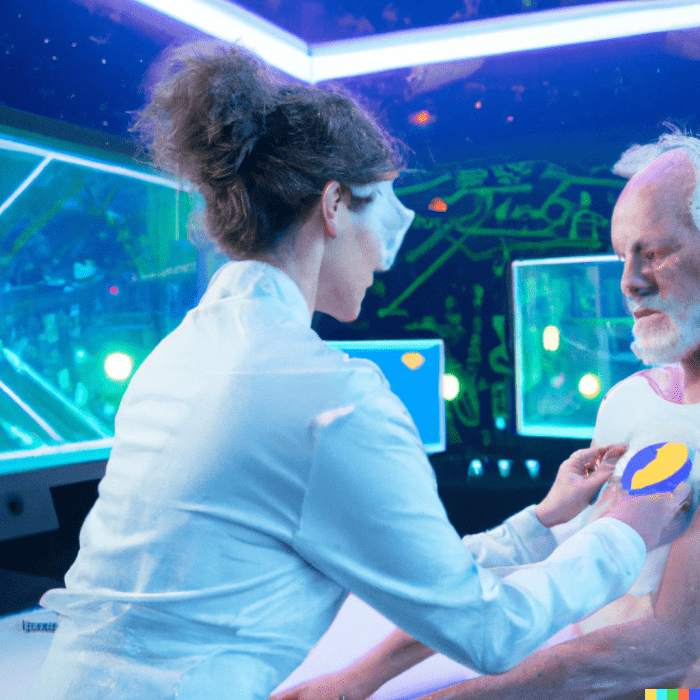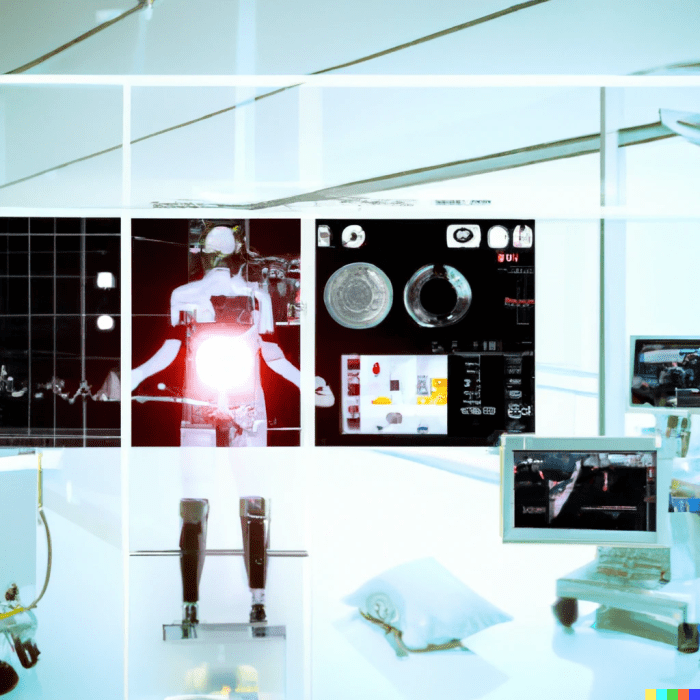The future of sonography: Do we need to worry?
The recent rise of AI in various industries has sparked discussions in the medical community, including the future of sonography. Which impact will it have on all of us? Do we need to worry?
A busy day in the emergency room 2033
Dr. Smith's busy workday in the emergency room just got even more hectic as a patient, panting and barely conscious is wheeled in. She springs into action, placing three ultrasound patches onto the chest with lightning speed - parasternal, apical, and subcostal. The sensors on the patches immediately recognize the ideal positions and light up green, shining like beacons of hope for the patient. Within mere seconds, all three views appear on the screen, and automated tools start working tirelessly in the background to determine the cardiac function, hemodynamic parameters, chamber size, and degree of valve pathologies. The parameters are displayed beat by beat, together with other vital signs gathered by body sensors and cameras. As Dr. Smith watches the screen, she hears a gentle voice through her earphones, "Mr. Miller has poor cardiac function but is not congested. He has hypovolemia. I would suggest giving 500ml of fluids."
 Potential Scenario in the emergency room. This image was generated with AI technology (DALL-E).
Potential Scenario in the emergency room. This image was generated with AI technology (DALL-E).
AI, what is on the horizon?
Using AI in ultrasound can revolutionize medical care, delivering faster and more accurate diagnoses and improving patient outcomes. Using patches for scanning, applying AI technologies for image guidance, and combining ultrasound information with other data are just a few of the many developments which are not only in the heads of science fiction authors but actually already in development.
 Artificial Intelligence in the emergency room. This image was generated with AI technology (DALL-E).
Artificial Intelligence in the emergency room. This image was generated with AI technology (DALL-E).
Pro and cons
The benefits of AI in healthcare are evident, from improving the work of healthcare professionals to providing faster, more accurate diagnoses and improving patient outcomes. In addition, AI can take on repetitive tasks, freeing healthcare professionals to focus on the human side of care. It has already demonstrated superiority in decision-making in some cases.
However, there are also concerns about the potential for errors or misdiagnoses with AI in medicine, which is why the healthcare industry needs to consider both the advantages and disadvantages of incorporating AI and putting safeguards in place to protect patient safety and well-being.
 Will AI mark the end of sonography as we know it? This image was generated with AI technology (DALL-E).
Will AI mark the end of sonography as we know it? This image was generated with AI technology (DALL-E).
But how will AI impact healthcare professionals and specifically ultrasound? Will we ultimately become redundant? I would be curious to read your comments!
Yours,
Thomas Binder


